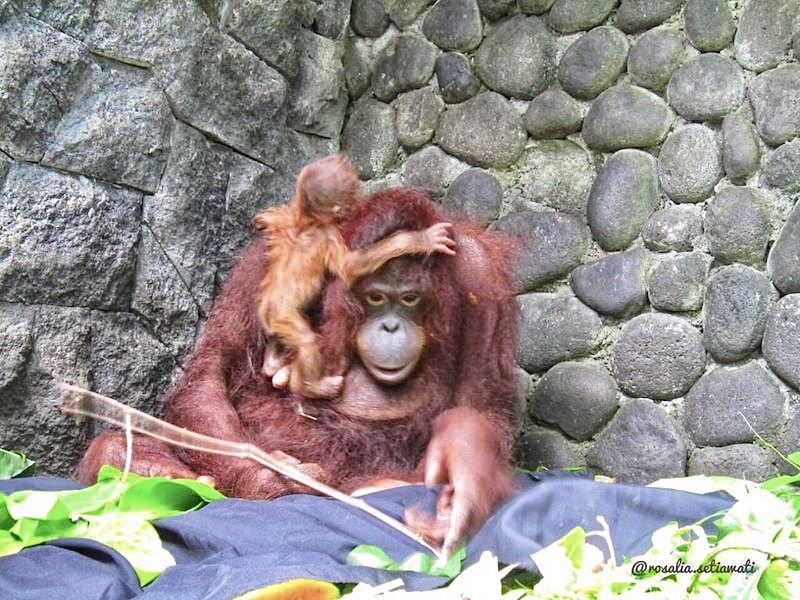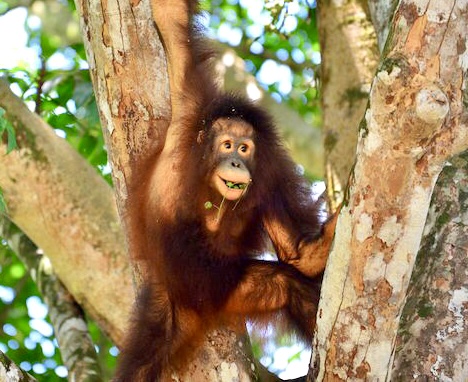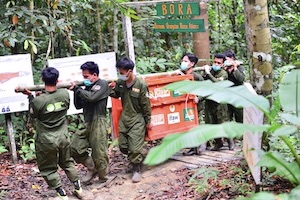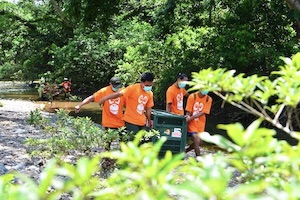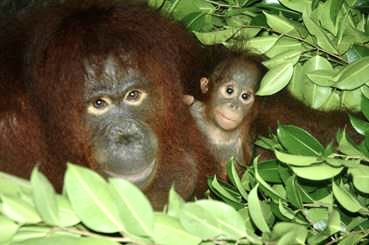Photo by: Wildlife Rescue Centre, Yogyakarta
In the first of a series of orangutan releases back into the wild this year, the Bornean Orangutan Rescue Alliance (BORA) – a joint initiative of the Indonesian Nature Conservation Agency (BKSDA), Centre for Orangutan Protection, and The Orangutan Project – have released two Critically Endangered Bornean orangutans into the Busang Ecosystem, one of the last remaining viable rainforest habitats for orangutans on the island of Borneo.
The mother daughter pair – Ucokwati (aged 18 years) and Mungil (aged eight years) – were deemed eligible for release after successfully completing rehabilitation at the BORA Rescue & Rehabilitation Centre in East Kalimantan.
The pair had previously been cared for at the Wildlife Rescue Centre in Yogyakarta on the Indonesian island of Java. Ucokwati was brought to the Centre after being rescued from an amusement park in October 2011 and gave birth to daughter Mungil in May 2013.
